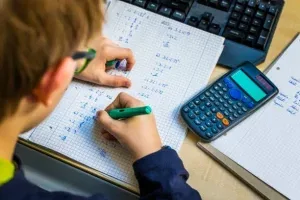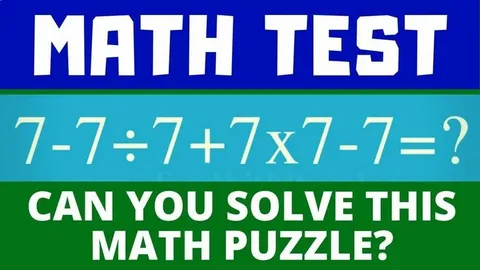Akuna Capital US Campus Trader Math Test
Table of Contents
- Introduction
- What Is the Akuna Capital US Campus Trader Math Test?
- Key Skills and Concepts validated
- Top Tips for Acing the Test
- Sample Questions and Solutions
- Practice Resources for Success
- FAQs
- Conclusion

Introduction
Are you looking to become an investor at Akuna Capital? Do you want to be a trader at Akuna Capital? The US Campus Trader Math Test could be a challenge; however, it’s one that you can conquer with proper practice. This test is an important component of the hiring process that allows Akuna Capital to evaluate your speed of thinking and math-related abilities. In this article, we’ll go over the format of the test, abilities you need, and strategies for achieving success. Let’s get prepared to take the test.
What Is the Akuna Capital US Campus Trader Math Test?
The Akuna Capital math test is part of the selection process for potential traders. As trader, your work requires quick mental calculations, quick decision-making and the ability to perform calculations under stress. This test tests your math skills, focusing on your ability to carry out complex calculations with no tools such as calculators.
In the world of trading, the use of numbers and calculations has to be a second-nature skill because when you’re in a high-speed trading environment, there’s no time to reach for a calculator or perform complex calculations. What you can expect is:
- Mental Mathematics Concentration The test tests your ability to solve arithmetic-related problems with your mind.
- Time Constraint The test is scheduled to simulate the real pressures of trading.
- Accuracy and precision Accuracy and Precision: Mistakes can be costly So accuracy is just as important as speed.
- Pattern Recognition There are many situations in which recognizing patterns or shortcuts could save you time.
Key Skills and Concepts Tested
To be successful in the Akuna Capital math test, you need to concentrate on a particular talent that will be assessed. Here’s a list of the essential skills:
- Basic Arithmetic
- Subtraction, Addition, Division, and multiplication They are the basic concepts for mental math. You’ll have to master basic math quickly and with accuracy without doubt.
- Mental Math Mastery
- without calculators The test was intended to be taken without calculators, which is why practicing mental math is essential.
- Rapidity and Precision The ability to do this is crucial when trading, as there are often only seconds to make a decision.
- Number Estimation
- Approximations There is no need to compute to the decimal mark each time. Estimation can help speed up the process of solving problems and allow you to arrive at a close-to-correct outcome faster.
- Fast Reasoning Ability to determine if an answer is within the right area prior to completing the full calculation.
- Pattern Recognition and Problem-Solving
- Shortcut detection: Recognize patterns in numbers as well as calculation shortcuts. This reduces time and mistakes.
- Simplification Reduce complex questions into easy steps.
Top Tips for Acing the Test
Are you prepared to improve your score? Here’s a set of tips that will aid you in sharpening your talent and passing the test. These strategies break down difficult steps into simple actions that make it easier for you to gain confidence.

Essential Tips for Success
- Practice Everyday As with any other skill, mental math gets better by repetition. Make time every day for the practice of math with flashcards or apps in order to keep the knowledge sharp.
- Simulation of Test Condition Training under real-world conditions using the timer. Begin with 30-second intervals, and gradually reduce them to increase your speed.
- Utilize Chunking Techniques for division or multiplication Break big numbers into smaller portions. This helps make big calculations manageable.
- Keep Calm under Pressure Practice relaxation techniques can help. When you’re calm, you’ll think more clearly and not make as many mistakes.
- Revision Errors After each practice session, you should review your mistakes. Knowing why you failed an answer will help you avoid identical mistakes when you take the test.
Quick Study Checklist
- Fundamental Arithmetic Exercises You can work through the basic Arithmetic questions quickly. Online tools like Math Trainer can help.
- Speed tests You can practice with timed exercises in order to improve speed.
- Mental Estimation Training Answers are usually approximated to calculations instead of focusing on precise numbers.
- Correction of errors After a few practice sessions, examine your mistakes to find areas where you can boost.
Sample Questions and Solutions
Let’s take a look at some sample questions that are similar to the ones you might be faced with during the exam. The questions are followed up by a short answer.
Example Question 1
Q: What is 732 x 29?
- Solution :
- Break it down Break it down: 732×30=21,960732 x 30 = 21,960732×30 = 21,960.
- Now, subtract one set of 732: 21,960-732 = 21,22821,960 – 732 = 21,22821,960-732 = 21,228.
- Answer: 21,228.
Example Question 2
Q: Divide 258 by 6.
- Solution :
- Simplify to make math more logical: 258/2=129258 * 2. = 129258/2=129.
- Divide 129/3 3. 43129/3=43.
- Answer: 43.
These questions point out the necessity for estimation and simplifying. If you are able to quickly identify the ways to break down numbers and save time, you’ll be able to make better decisions.
Practice Resources for Success
Finding reliable sources for practice is crucial to increasing your speed and accuracy in math. Here are some resources and tools to help you:
- Mental Math Applications Apps such as Mental Math Trainer or Math Drills let you test your arithmetic knowledge on the go.
- Online Testing Timed Websites such as Math Trainer and Speed Math provide timed exercises that simulate the test environment.
- books: “Mental Math for Dummies” is a simple guide that explains mental math strategies in a simple-to-read style.
Use these resources to improve your talent. A consistent practice routine is vital for significant improvement.

FAQs
Question 1: How do you feel about this test? Akuna Capital math test?
A The task is difficult if you are not familiar with quick mental math But with regular training, it’s doable.
Question 2: Can you use calculators for the test?
Answer: There are no calculators permitted. This test was designed in order to measure your math talent in the mind.
Q3: Which mathematical talent should I be focusing upon the most?
A: Start with basic math (addition, subtraction, division, multiplication). Then move on to speed and precision exercises. Estimation and pattern recognition can also be helpful.
Question 4: How do I plan my preparation when I’m short on time?
A. Concentration upon short intense, intense sessions using timed exercises. Make use of mental math apps to prioritize speed and precision.
Q5: Do the other components that are part of the Akuna Capital recruitment process include math?
A: While the math test is specifically designed for trader jobs, other positions may have tests that are different. Be sure to verify the specifications for the particular position that you’re applying for.
Conclusion
The process of preparing for taking the Akuna Capital Campus US Test Math can be overwhelming, but regular practice is an excellent instrument. The test is about testing your math skills and the good thing is that with regular practice, everyone is able to boost. Begin by learning the basics, then focus on accuracy, then build your speed with time. Keep in mind that every problem you solve will be a step closer to the ambition that you want to be a trading professional with Akuna Capital. If you are focused and persistent, you’ll be able to prepare for testing day. Have fun!
Final Note: Remember, practice is the most reliable way to build confidence and skill.




